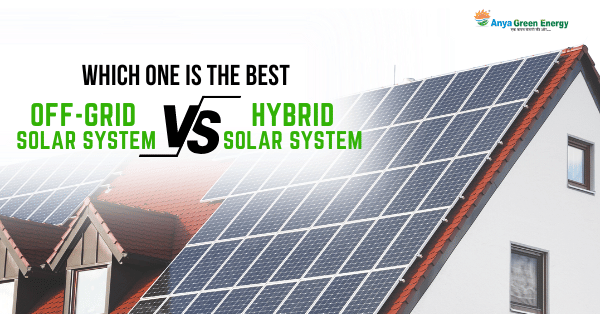HYBRID SOLAR SYSTEM FOR IRON INDUSTRY
In the ever-evolving landscape of industrial sustainability, the iron industry stands as a pillar of progress. However, its operations are energy-intensive, demanding innovative solutions to mitigate environmental impact. Enter the Hybrid Solar System for iron industry – a cutting-edge integration of solar and conventional energy sources. This revolutionary technology is poised to reshape the iron industry, offering a sustainable and economically viable solution to power the future.
GET HYBRID SOLAR SYSTEM FOR IRON INDUSTRY:

Why choose a hybrid solar system for iron industry ?
- Energy Reliability:
The iron industry relies on a continuous and reliable power supply to operate its machinery. Hybrid solar system for iron industry combines the steady supply of conventional energy with the intermittent yet abundant energy from solar panels. This ensures uninterrupted production, reducing downtime and increasing overall efficiency.
- Cost-Effectiveness:
With the fluctuating costs of conventional energy sources, the iron industry often faces unpredictable operational expenses. A hybrid solar system stabilizes energy costs by harnessing the sun’s energy, providing a reliable and cost-effective alternative. By offsetting a significant portion of their energy needs, iron manufacturers can insulate themselves from the impact of energy price volatility.
- Environmental Sustainability:
Reducing the environmental footprint is no longer a choice but a necessity for industries worldwide. Hybrid solar system for iron industry can significantly cut down on greenhouse gas emissions, contributing to a cleaner, more sustainable future. By utilizing renewable energy, the iron industry can take a giant leap towards meeting its environmental responsibilities.
- Carbon Footprint Reduction:
The iron industry is notorious for its high carbon emissions. By adopting hybrid solar systems, these emissions can be drastically reduced. Solar energy generates electricity with zero direct emissions, allowing iron manufacturers to meet emission targets while maintaining production levels.
- Compliance with Regulations:
Governments and regulatory bodies are increasingly imposing stricter environmental standards on industries. Hybrid solar systems enable iron manufacturers to not only meet but exceed these regulations, positioning them as responsible and environmentally conscious players in the industry.
Benefits of hybrid solar system for iron industry
- Enhanced Energy Independence:
Hybrid solar system for iron industry provide an opportunity for the industry to diversify its energy sources, reducing dependence on non-renewable resources. This newfound energy independence not only shields the industry from energy supply disruptions but also enhances its resilience in the face of unforeseen challenges.
- Long-Term Financial Savings:
Investing in a hybrid solar system represents a sound financial decision for the iron industry. While the initial setup costs may seem substantial, the long-term benefits far outweigh the investment. Reduced energy bills, government incentives, and potential revenue from excess energy generation contribute to a positive return on investment.
- Technological Advancements:
Embracing hybrid solar technology fosters innovation within the iron industry. As the technology continues to evolve, manufacturers can stay at the forefront of sustainable practices, gaining a competitive edge in the market.
Conclusion:
The hybrid solar system stands as a beacon of hope for the iron industry, providing a sustainable, reliable, and economically viable solution to its energy needs. By reducing carbon emissions, stabilizing energy costs, and fostering technological advancement, this technology paves the way for a greener future in iron production. Embracing hybrid solar systems isn’t just a choice; it’s an imperative step towards a more sustainable tomorrow. The iron industry now has the power to shape its destiny, leaving behind a legacy of responsible production and environmental stewardship.


